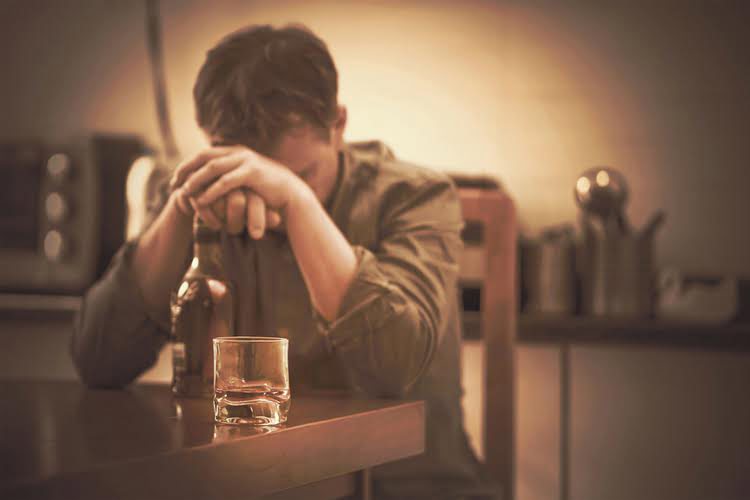Working with a medical professional to taper your alcohol consumption can help the likelihood and severity of alcohol withdrawal symptoms. Instead of quitting alcohol cold turkey, you can steadily reduce your consumption so that your body has time to gradually readjust to absence of alcohol. It’s important to note that stopping drinking can be dangerous and even life-threatening.
- When you stop drinking, the liver has the opportunity to recover from the effects of alcohol.
- Because alcohol withdrawal symptoms can sometimes be unpredictable and may escalate quickly, having an on-site medical team that can quickly intervene is the safest way to quit heavy drinking.
- I have a complete guide on Alternatives to Rehab, which has over a dozen different options to select from.
- If you or a loved one is suffering from an alcohol use disorder, it can feel like being trapped in a tunnel with no way out.
- Before a doctor begins a tapering plan with medications, they will assess the medical stability, including vital sign stability, and pattern of withdrawal symptoms in the patient.
- “In the past, you might feel excluded within the food and drink space if you didn’t want to drink,” says Hutchison.
People who are severely dependent or addicted to alcohol should seek medical support for alcohol detox. Tapering off alcohol, rather than stopping all at once, is the most effective way to avoid serious withdrawal symptoms and other problems such as dehydration. Risky withdrawal symptoms are not limited to the above.3 Learn more about alcohol withdrawal here and, once again, speak to a doctor first. If you’ve decided to taper off alcohol, you’ll need to be prepared with some strategies to make the process easier.
When To Seek Medical Attention
For example, someone with a severe dependence on alcohol may benefit from a gradual process, helping to reduce the imminent hard hit of withdrawal symptoms. However, it is important to be aware of the risks of attempting a taper on your own. Sometimes, people think that if their symptoms are mild, they don’t need medical help. Unfortunately, alcohol withdrawal symptoms can worsen quickly, and they can include agitation and hallucinations that make it more difficult to seek help. For this reason, it is best to seek medical advice on whether you should taper at home or under medical observation.
Although going cold turkey on opioids is dangerous and can cause significant withdrawal symptoms, quitting alcohol cold turkey can be fatal. Tapering off alcohol at home versus under medical supervision can also lengthen the process, for the sake of safety. Unlike a home environment, medical detox services have the professional support and resources necessary to treat severe withdrawal symptoms. This http://wizardtop.ru/index.php?do=out&id=1024 medical supervision allows for some patients to quit drinking cold-turkey without compromising safety. Whatever method you use to taper down, your plan should also be approved and monitored by a healthcare profession to ensure your safety. Working with a physician on the Monument platform can help determine what timeline will work for you based on your past drinking habits and risk of withdrawal.
Have a lower-strength drink
In addition, you can send messages to your therapist throughout the week, asking questions as you go through your process of tapering off alcohol. Doctors and professionals might diagnose alcoholism and addiction based http://www.thailande.ru/blogs/copharmq/sshit-shljapu-svoimi-rukami-vykroika.html on the symptoms presented at the clinic, along with the patient’s history. This will involve looking at behaviour and the development of symptoms, along with whether you have tried to cut down or quit drinking before.

If you get moderate tremors or start hallucinating six hours after your last drink, you probably need to taper. Everyone is different, so it’s ultimately up to you to decide if you want to taper or not. Alcohol withdrawal symptoms can be greatly reduced or even eliminated with proper medical care. There are specific treatments available for anyone who wants to stop drinking—even after long-term, chronic alcohol use. The exact timeline for alcohol withdrawal varies from person to person.
Strategies for Tapering Off Alcohol
They may also refer you to support groups or counseling services. The tapering schedule can depend on factors such as your level of addiction, how long you’ve been drinking, and any underlying health conditions. Your healthcare provider may also prescribe medication to help you manage withdrawal symptoms. Excessive alcohol consumption can adversely http://slushai-knigi.ru/93944-calling-this-losing-over-2013.html affect your physical health by potentially causing liver damage, high blood pressure, and increased cancer risk. Conversely, tapering off alcohol can improve physical fitness and reduce the risk of developing health conditions. Tapering off alcohol can be an effective method for quitting alcohol, especially for those with physical dependence.

If you face challenges, professional support is available to you. Consider contacting a licensed therapist online or in your area to get started. He needed to leave Detroit, and he found an opportunity, moving to Austin, Texas.

